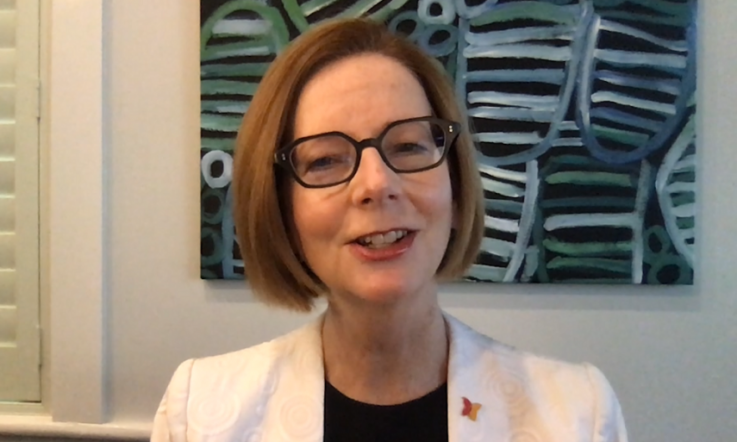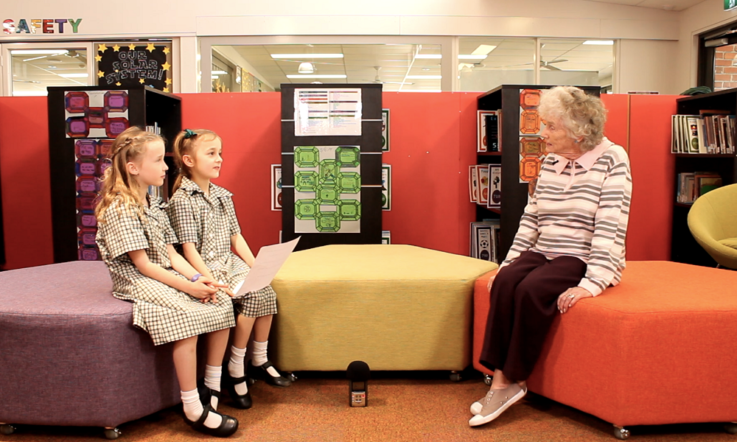As Australia marks World Teachers’ Day, a new survey report released to coincide with the celebrations shines a light on school educators’ passion for, and dedication to, the profession and lifelong learning. But it also reveals how the job is taking a toll on their wellbeing.
According to the NEiTA-ACE Teachers Report Card 2021, 75% of teachers feel stressed by their work and 82% struggle with work-life balance. When asked if they had thought about leaving the profession, 48% said they did ‘fairly often’ or ‘most of the time’ – overall, 84% of survey participants had thought about it in the last 12 months.
The Teachers Report Card 2021 is a joint initiative between the Futurity Investment Group and the Australian College of Educators (ACE), a national professional association.
The research was carried out in July 2021 and involved 571 teachers from across Australia, working in all school sectors. Experience levels ranged from pre-service and early career teachers to principals. Survey topics included wellbeing, job satisfaction, homework, the curriculum, and teacher experiences of the COVID-19 pandemic.
The NEiTA – ACE Teachers Report Card 2021: Teachers’ perceptions of education and their profession, was published today. Here are some of the findings.
Passion for teaching
The overwhelming majority of those surveyed said they find teaching ‘rewarding’, or ‘very rewarding’ (87%), although that figure was down from 96% in 2017. Just under two-thirds said they were ‘satisfied’ or ‘very satisfied’ with the job – in 2017, it was nine out of 10. The 2021 report offers some further insight into their responses.
‘There was a lot of overlap in the reasons given for why teachers teach and what they find rewarding. A popular answer was “to make a difference”. Teachers want to see their students achieve their potential, exceed their own expectations and believe in themselves.
‘Many teachers find it rewarding to engage with young people, take pleasure in watching children learn and grow, and thrive on the gratitude of current and former students. Teachers talked repeatedly of their love of witnessing the “lightbulb” or “ah-ha!” moments when things suddenly “click” and students “get it”.
‘For many teachers, their initial and ongoing motivation is to help students learn, to instil a love of learning and to encourage learning as a lifelong pursuit. Others are more future-focused: they see their purpose as preparing students for tomorrow’s world of work and equipping them to become engaged citizens.’
Professional development
When it comes to their own learning, the report says 86% participated in professional development in the three months prior to the survey and almost all said PD was beneficial or very beneficial. ‘Teachers are so invested in their own professional development that three-quarters engage with online social networks to improve personal practice,’ the report adds.
On the down side, one-third said they had shared the cost of professional learning with their school and one in 10 had covered all the expenses on their own.
Homework, technology the future
On the subject of homework, the responses differed depending on the school stage – 34% of secondary teachers said there was ‘not enough’ or ‘not nearly enough’ homework given, compared to just 12% of primary teachers; 62% of primary and 55% of secondary teachers thought there was ‘too much’ homework.
Around three-quarters of those survey (78%) believed student use of personal digital devices should be limited to before or after school.
Thinking about the future, teachers were asked to rate the importance of students developing skills in 11 areas: communication; adaptability and resilience; collaboration and relationships; critical thinking and problem solving; information technology; leadership and taking responsibility; self-awareness and mindfulness; imagination and creativity; motivation; initiative and entrepreneurialism; and, data analysis. In all 11, more than 90% said these skills were either ‘important’ or ‘very important’.
Teacher wellbeing
‘Demands on teachers’ time, workload, expectations and dealing with behaviour and other challenges is taking its toll,’ the report says. ‘It is impacting work-life balance, creating stress, fuelling pessimism regarding performance, and causing many teachers to think about leaving.
‘Four out of five teachers told us that their work-life balance is either less than ideal or non-existent. While impacting both genders, this was felt most acutely by female teachers. The encroachment of work on other life priorities was also stark for teachers with 11 to 20 years’ teaching experience, with 86% identifying it as an issue.’
Experiences of the pandemic
The report explores the preparedness of schools to deliver online learning, as well as the training and support received by staff. Survey participants were asked to assess their own resilience and adaptability in the face of the unprecedented changes in schools during the pandemic and periods of remote learning.
Asked if they felt the importance of teaching was now better recognised by the public, 43% agreed/strongly agreed and 34% disagreed/strongly disagreed; the proportions were 25% and 45%, respectively, when asked if the status of the teaching profession is higher. The most positive response was to the statement: ‘I was well supported by the school’s leadership team’ – 56% agreed/strongly agreed, and 25% disagreed/strongly disagreed.
The full report can be accessed by clicking on the link.



